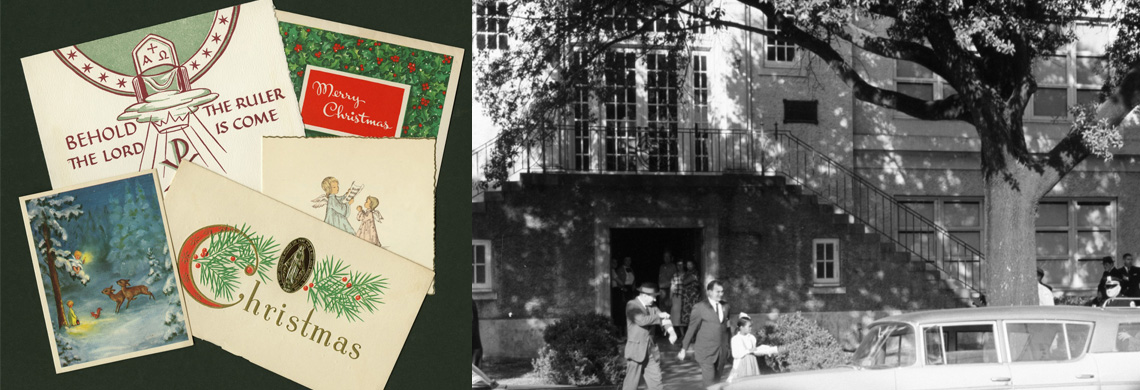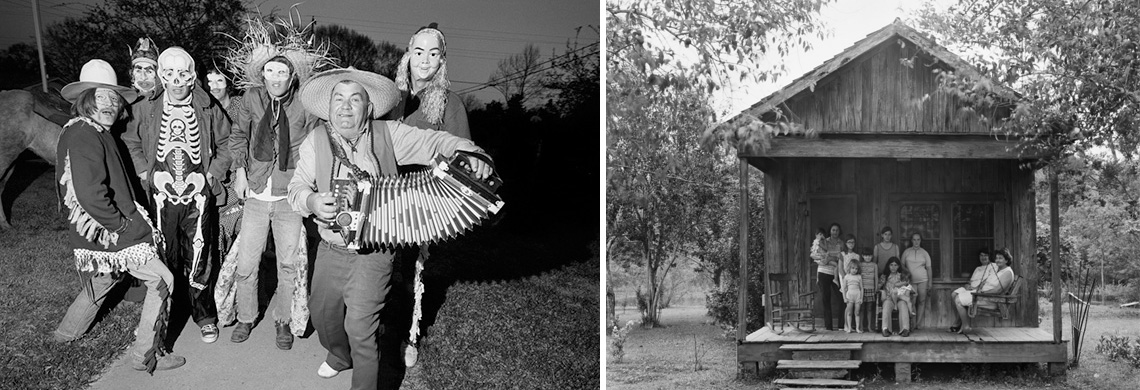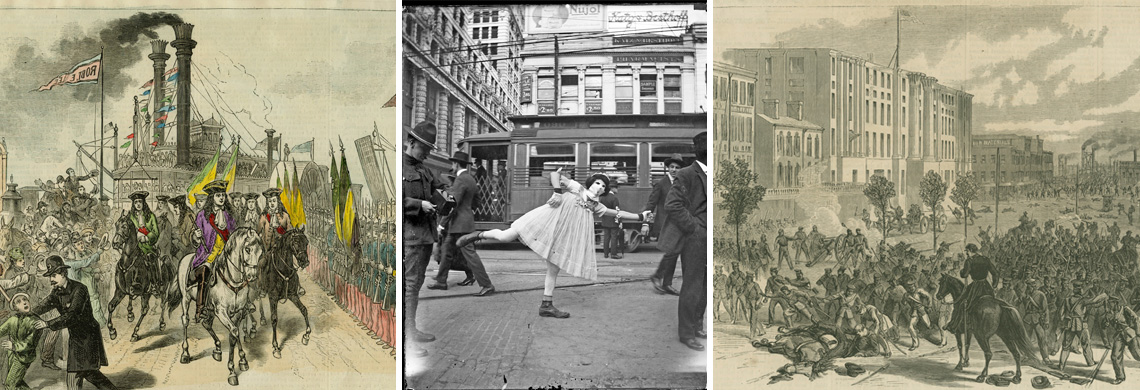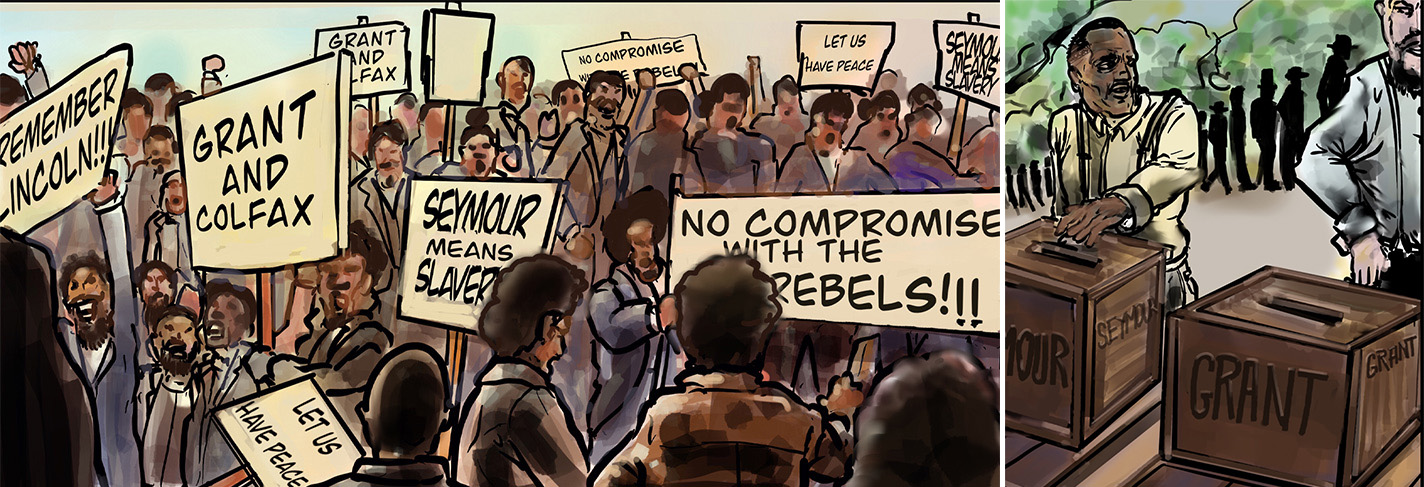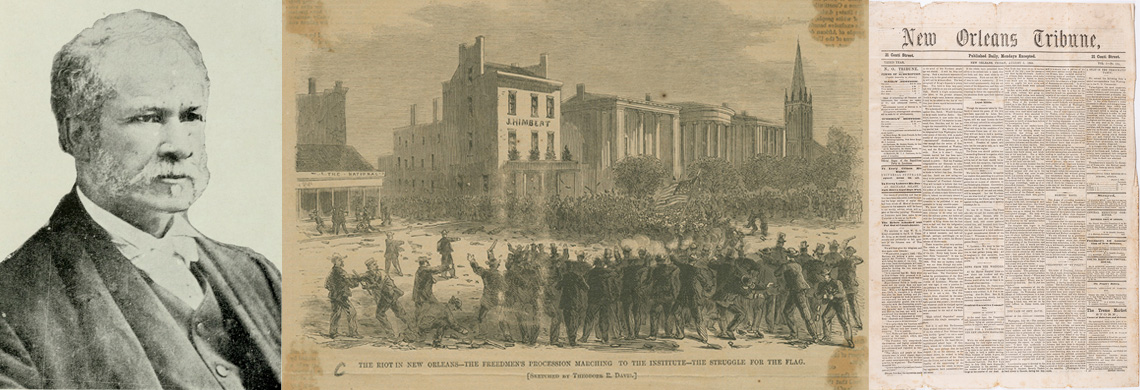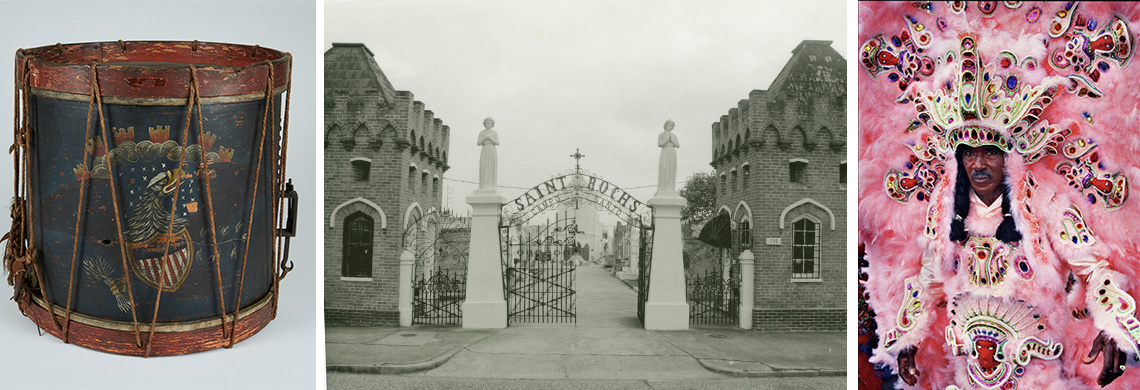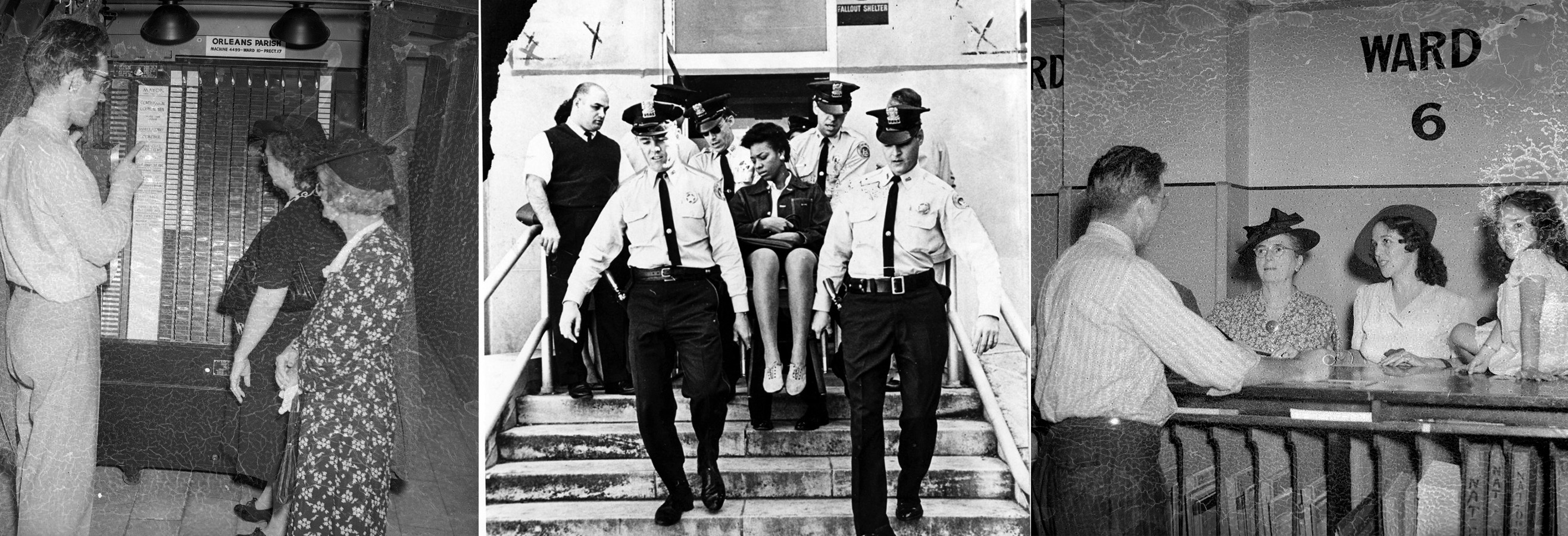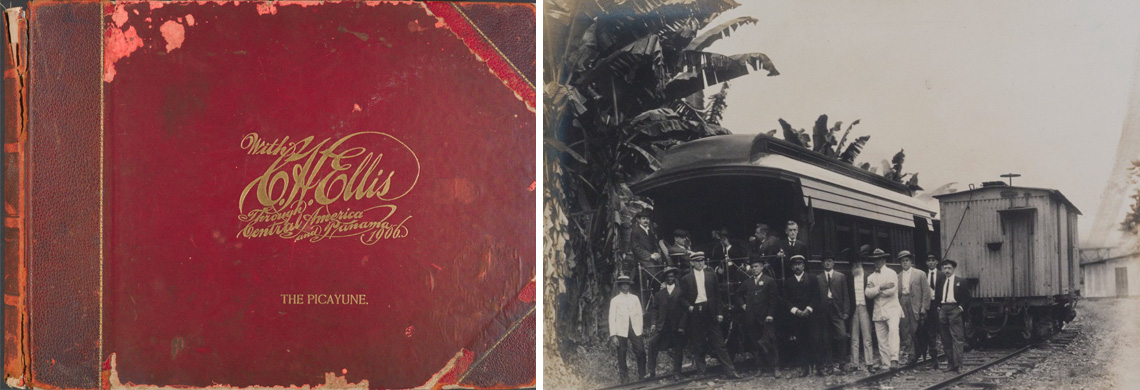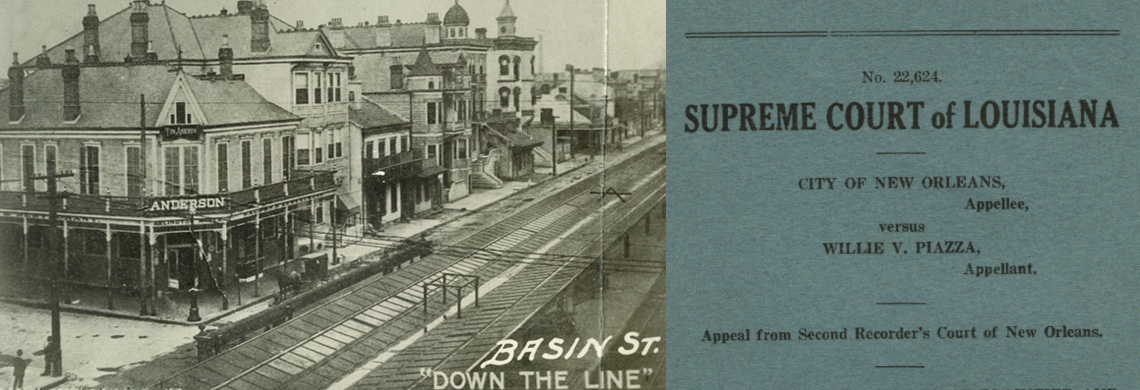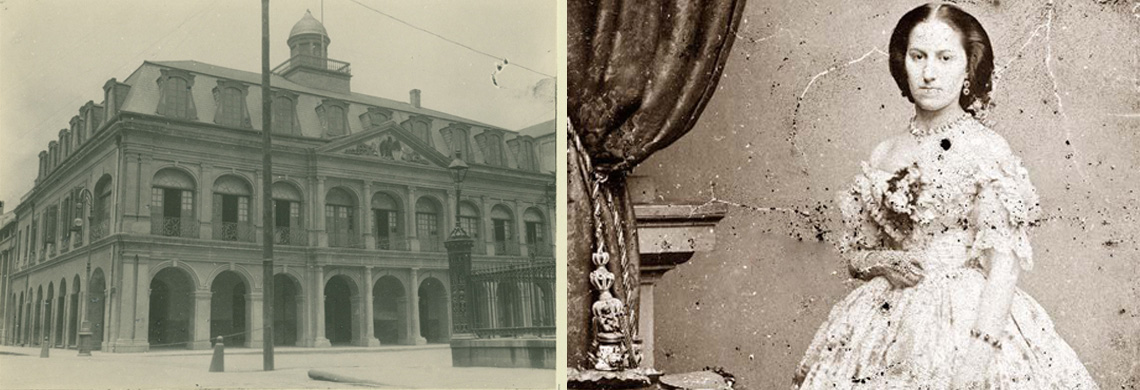On November 14, 1960, four six-year-old girls in New Orleans became pioneers in the national civil rights movement. While they were confronted by mobs of protestors in their own neighborhoods, well-wishers from across the country sent cards of encouragement.
What does it mean to be Cajun? We explore the roots of this complicated identity through 12 individual stories.
As New Orleans braces for a vastly downsized Carnival 2021 because of the ongoing coronavirus pandemic, THNOC is looking back at each cancellation, focusing on what the city was like at that time, the activities of the krewes during the downtime, and the celebrations that did take place despite the shutdown of big parades.
In the first presidential election after the Civil War, violence and voter suppression prevented Black voters from exercising their right.
Amid the American Civil War, a new civil rights movement was forming in New Orleans—in French.
For years, cinephiles have lamented a lack of originality coming out of Hollywood studios. However, there’s no shortage of stories waiting to be told onscreen, and that’s where we can be of use to studio bosses.
Often, the story of women’s suffrage ends at the ratification of the 19th Amendment. Yet, for many women in the South, the fight did not end there.
A large photograph album bound in red leather documents a 1906 “quarantine tour” of Central America sponsored by the United Fruit Company during the final outbreak of yellow fever in New Orleans. The book is a fascinating example of the tremendous influence of the banana-import business in early 20th-century New Orleans and the efforts by one company to skirt quarantine regulations.
When the City of New Orleans passed an ordinance to remove black prostitutes from Storyville, Willie Piazza fought back. Her challenge to segregation was an early, though fleeting, victory against Jim Crow.
Myra Clark Gaines was at the center of a 57-year estate battle involving hidden paternity, a destroyed will, and a multimillion-dollar fortune.


